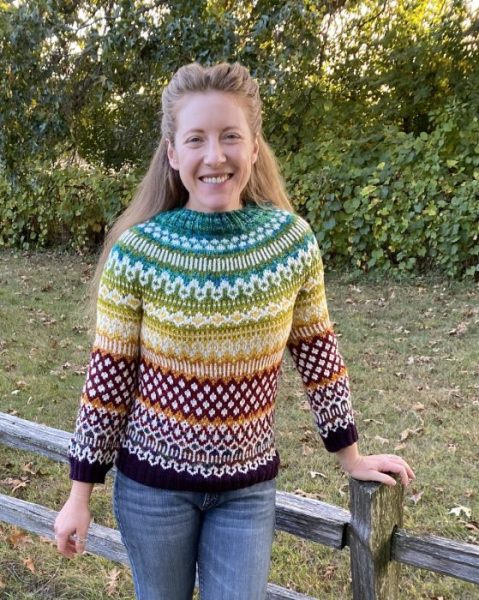
Abbey Roelofs is a research software programming lead for LSA Technology Services. In her role, she leads a team that does custom software and hardware development for researchers within LSA. She enjoys reading, making stuff, and being outdoors (which usually involves walking, biking, gardening or kayaking).
Can you tell us a little bit about your role in LSA Technology Services?
I lead the Research Software Programming group within our Research Computing and Infrastructure Services team. Our group does custom software development and sometimes hardware development for researchers in LSA. That can be anything from making web pages and mobile apps, to making analysis programs for MATLAB, to making programs that will run some obscure piece of chemistry analysis equipment. We work on a whole variety of things. In addition to working on my own projects, I keep track of who’s doing what and how projects are going, as well as planning for upcoming work. There are currently five members on my team.
What is the most interesting project you have worked on?
That is a hard question because we work on a lot of really cool projects. I think the one that I found the most interesting was for a professor in psychology who is using electrode brain implants to stimulate brain activity to help people who are having seizures. He wanted a program to help place the brain implants more accurately, and record where they had placed them. The implants were little grids of a bunch of electrodes. The professor had computer models of the brain from MRI scans and we created a program for him that takes those models and shows them in MATLAB. That allowed him to create electrode grid plots and place them on the brain model and move them around in the program and see where they are and export the coordinates. This gave him a very accurate representation of where all of the brain implants were. I liked this project not just because of the real-world application, but also because it was a challenge—I accepted it assuming that MATLAB had a function to do exactly what we needed to place the electrode grid on the brain model. Once I got started, it turned out that wasn’t the case so I had to come up with an algorithm to do this, which was really interesting.
What is one thing you wish people knew about your team?
I wish more people knew we existed! It’s a great service and the number of faculty members who take advantage of it isn’t as large as it could be. To any LSA researcher who has ideas on how they want to use a computer program creatively, or has ever wished they had a computer program that did something to make their job easier, come talk to us—we might be able to make it happen! We’ve helped grad students who were doing something super repetitive, like clicking the same combination of seven buttons in an image processing program over and over and over again. They reached out to us asking, “Is there an easier way to do this?” and we were able to write a program that automated their work and saved them a bunch of time.
What do you like most about your job (or team)?
I think what I like most about the job is the variety of things we get to work on, which means there’s always the chance to learn something new. We get a pretty wide range of projects from all across LSA, both in terms of the technology we use and also the research topics. It’s fascinating to see the breadth of research going on and to actually get to help out with some of it.
What do you enjoy doing outside of work?
It’s a mile-long list, but my top three categories are reading, making stuff, and being outdoors. Being outdoors usually involves walking, biking, gardening or kayaking. Making stuff could be anything from crafting to baking to DIY projects or woodworking. My projects in progress right now include knitting a sweater for my mother-in-law, sewing a couple of summer dresses, and renovating a 40-year-old sailboat with my husband, so we’ll soon be adding sailing to the outdoor activities. I also recently took a welding class at Washtenaw Community College, so that should open up a whole new range of potential projects.
What is something people don’t know about you that they would be surprised to find out?
I’ve been tandem bicycling with my husband for over a decade. We started because he was a stronger biker than me, and I got tired of being left behind when we’d ride together—a tandem bike turned out to be a great solution. We’ve gone to tandem bike rallies in three states and even rode our tandem across the country from Connecticut to Seattle, which took a little over two months. We’re getting a tandem mountain bike this summer, so we’ll see what new adventures that leads to!
This interview was originally published in the January 2023 LSA TS Innovate newsletter.
